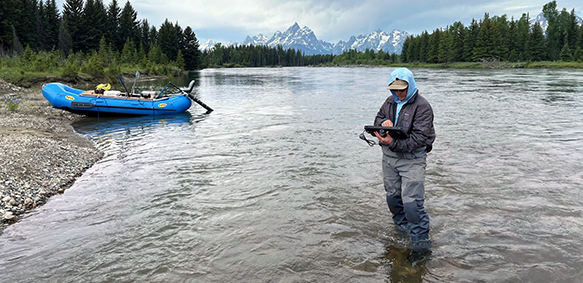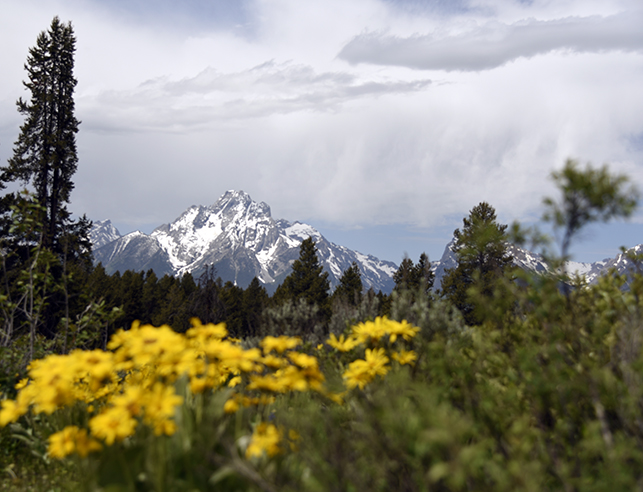Enabling Wyoming’s communities to anticipate and prepare for future changes in water availability.
WyACT is an interdisciplinary five-year National Science Foundation-funded project led by the University of Wyoming.
What
We strive to understand the interactions of social and ecological systems, so we can make better predictions about potential futures.
We fine-tune climate data into regional models for Wyoming and use them to explore climate-change effects on hydrology, ecosystems, wildlife, and human communities.
We examine values, information sources, vulnerabilities, and decision-making around water, generating critical input for integrated modeling.
How
We partner with groups at the forefront of changing water resources in Wyoming, such as sovereign tribes, agencies, organizations, and communities. Their diverse knowledge and perspectives are key to understanding complex challenges and help generate more robust outcomes. Co-producing knowledge creates outcomes that are useful and usable for decision-making.
Leveraging model outputs with place-based and practical knowledge to imagine a range of scenarios about changes to water resources to prepare for an uncertain future.
Where
The work concentrates on the headwaters of important river systems in western Wyoming: Snake River, Wind River, and Green River.
Who
Over 100 researchers, students and staff from 16 University departments have connected with Wyoming communities, practitioners, and decision-makers.
establishing ongoing centers at UW
The CoLaborative for Intersectoral Modeling of the Earth System (CLIMES) will develop national leadership in integrated human-earth systems modeling.
CLIMES will provide quantitative, computational projections of regionally relevant environmental futures for Wyoming and beyond, producing innovative research with practical applications, aiming to make a real difference in how we understand and respond to environmental change.
The Socio-Environmental Observatory Network (SEaSON) provides trusted, freely available data on coupled human-environment systems and their responses to changing water availability.
SEaSON monitors watershed health, ecological disturbances, community responses and feedbacks. Sensors and observations record hydrological flows and storage, lake and stream ecological states, fish population, forest structure, and human movements and experiences.
What climate-related risks threaten interacting and heterogeneous hydrological, ecological and social systems at regional scales in coming decades?
How do individuals, communities and organizations best respond to climate-induced risks (including mitigation, adaptation and transformation)?
How can the process of co-production build trust and adaptive capacity for key stakeholders and communities?
How might societal responses interact with biophysical processes and feedbacks to alter future risks and vulnerabilities?

Explore how our team is tackling Wyoming’s water challenges through data-driven and policy-relevant research. Our blog features first-hand findings and field stories that bridge science and community needs.
Read the Blog


